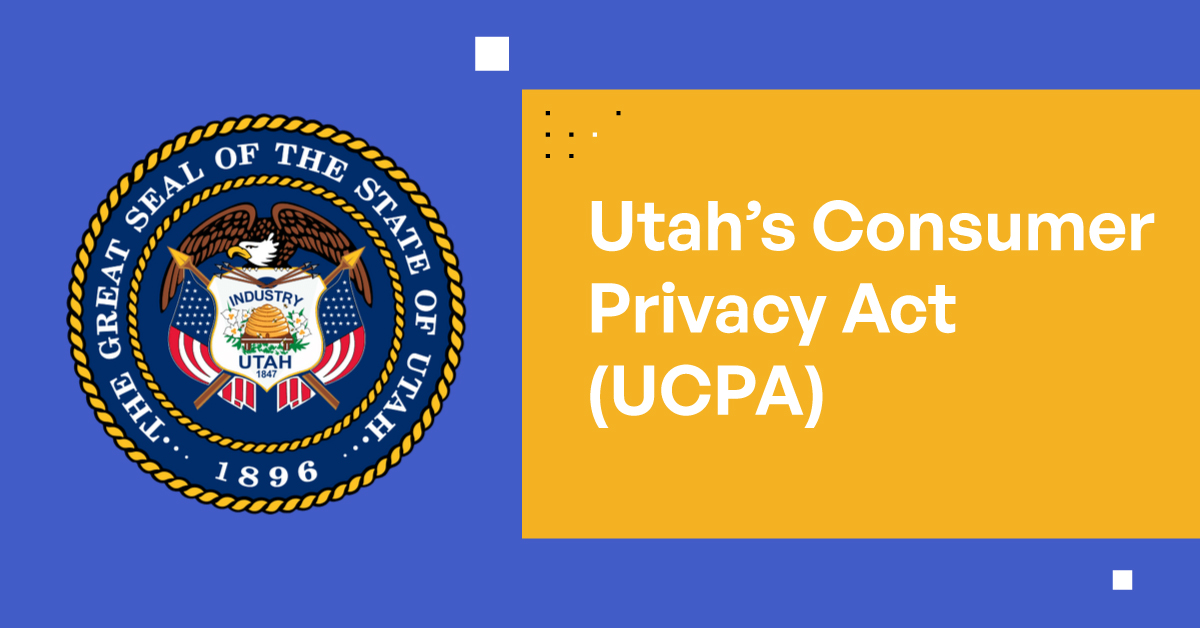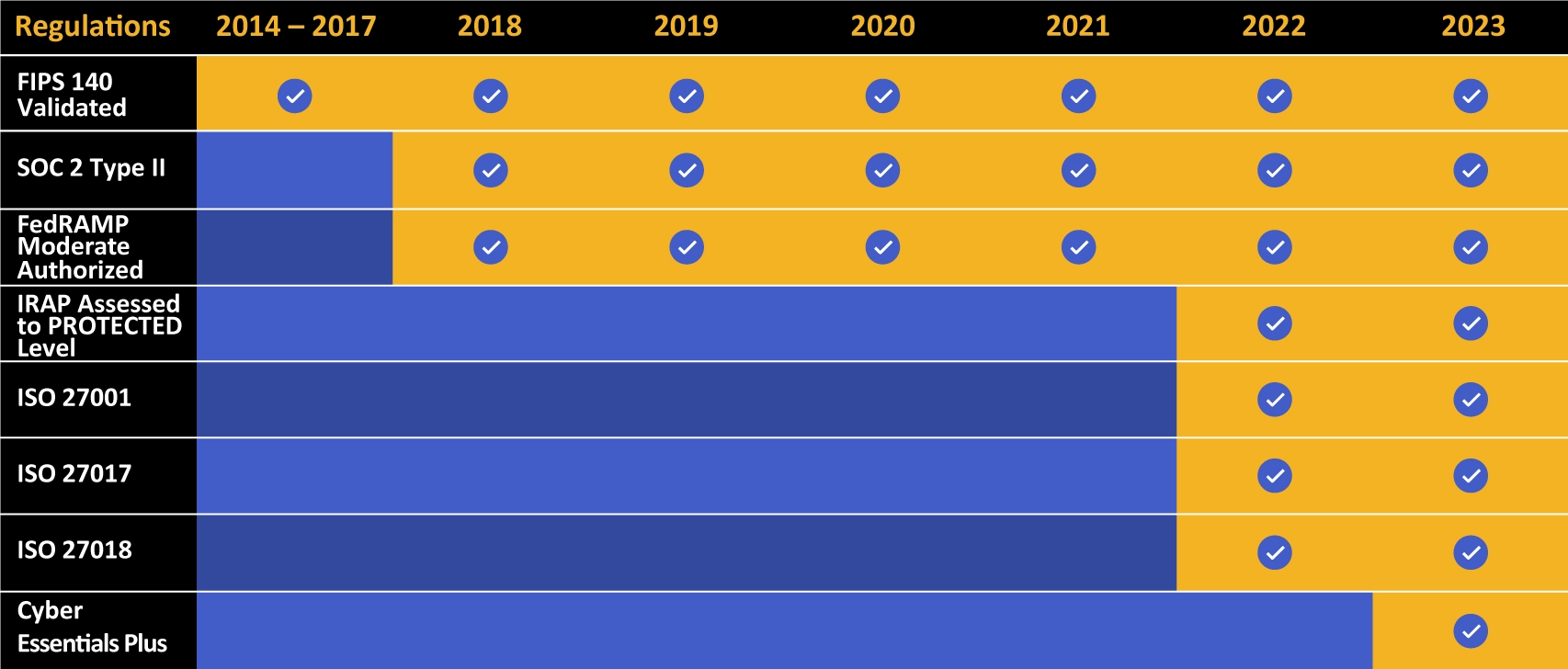Utah’s Consumer Privacy Act (UCPA)
Consumer privacy is becoming increasingly important in the digital age. In 2020, the state of Utah passed the Utah Consumer Privacy Act (UCPA), making Utah one of the first states in the country to pass a consumer privacy law. Read on to learn what the UCPA is, what it covers, and how it affects businesses and consumers in Utah.

What Is the Utah Consumer Privacy Act?
The UCPA is a consumer privacy law that was passed in Utah in 2020. It requires businesses to meet certain requirements when collecting, storing, and sharing consumer data. The UCPA also provides consumers with specific rights and protections when it comes to their personal data. The UCPA is modeled after the California Consumer Privacy Act (CCPA) and provides additional consumer protections for Utah residents.
What Does the UCPA Cover?
The UCPA covers the collection, storage, use, and sale of consumer data. The law applies to all businesses that collect, store, use, or sell personal information of any Utah resident regardless of where the business is located. The law also applies to any business that collects personal information of any minor who is a Utah resident. The UCPA covers both online and offline data collection and applies to any type of consumer data, including contact information, biometric data, and other personally identifiable information (PII).
What Are the Requirements of the UCPA?
The UCPA requires businesses to meet certain requirements when collecting and handling consumer data. These include giving consumers the right to access and delete their data, the ability to opt out of the sale of their data, the right to be informed of any data breaches or data misuse, and the right to be notified of how their data is being used. Additionally, the UCPA requires businesses to provide a privacy policy that describes how consumer data is collected, used, and shared.
UCPA vs. CCPA vs. VCDPA vs. CPA: Similarities and Differences
The Utah Consumer Privacy Act (UCPA), the California Consumer Privacy Act (CCPA), and the Virginia Consumer Data Protection Act (VCDPA) are three pieces of legislation that provide individuals with greater rights over their data. All three of these laws share commonalities in that they all require businesses to provide clear and conspicuous notice to consumers about their data collection, allow consumers to access, correct, and delete their data, and offer limited liability protection for companies who comply with the laws.
There are, however, important differences between these laws. The UCPA, for example, does not provide the same level of enforcement as the CCPA nor does it provide a private right of action, whereas the CCPA and the VCDPA both do. The CCPA gives consumers the right to opt out of the sale of their data, whereas the VCDPA does not. The VCDPA imposes a stricter set of data protection rules than the other two, including requiring businesses to provide security measures for consumer data, as well as implementing certain consumer data processing restrictions.
The other key difference between the UCPA and the other consumer privacy laws is the nature of the consumer rights and protections provided. All of the laws provide consumers with the right to access, delete, and opt out of the sale of their data. However, the UCPA also provides consumers with the right to be notified of data misuse and data breaches and the right to be informed of how their data is being used.
How Are Consumers Impacted by the UCPA?
The UCPA provides additional rights and protections for Utah consumers when it comes to their personal data. The UCPA grants consumers the right to access, delete, and opt out of the sale of their data. The UCPA requires businesses to provide a privacy policy that describes how consumer data is collected, used, and shared. This allows consumers to make informed decisions about how their data is used and to have more control over their data.
The UCPA also provides consumers with the right to be notified of data misuse and data breaches, which helps to ensure that their data is kept safe and secure. The UCPA grants consumers the right to be informed of how their data is being used, enabling them to make more informed decisions about how their data is used.

Kiteworks touts a long list of compliance and certification achievements.
How Are Businesses Impacted by the UCPA?
The UCPA impacts businesses in several ways. First, businesses must comply with the requirements of the UCPA when collecting and handling consumer data. This includes providing consumers with the right to access, delete, and opt out of the sale of their data. Additionally, businesses must provide a privacy policy that describes how consumer data is collected, used, and shared.
The UCPA also requires businesses to provide consumers with the right to be notified of data misuse and data breaches. This helps protect businesses from potential liability resulting from data misuse or data breaches. Finally, the UCPA requires businesses to be transparent about how consumer data is used, which can help build consumer trust and loyalty.
Who Must Comply With the UCPA?
The Utah Consumer Privacy Act requires any for-profit entity that conducts business in Utah and collects, processes, or stores personal information of 500 or more Utah residents to comply with its requirements. This includes companies that do not have a physical presence in Utah but may interact with Utah residents through a website, mobile application, or other similar online method. It also applies to companies that have a physical location within Utah. Companies that are subject to the UCPA must have a privacy policy that clearly defines how personal data is collected, used, shared, and protected, and must adhere to certain rights related to the collection and use of personal data, including the right to access, correct, delete, restrict, and object to the processing of such data. Businesses must also implement appropriate security measures to protect any collected personal data and must comply with other various obligations outlined in the UCPA.
How Can Businesses Comply With the UCPA?
In order to comply with the UCPA, businesses must meet certain requirements when collecting and handling consumer data. These include providing consumers with the right to access and delete their data, the ability to opt out of the sale of their data, the right to be notified of data misuse and data breaches, and the right to be informed of how their data is being used. Additionally, businesses must provide a privacy policy that describes how consumer data is collected, used, and shared.
Responsibilities for Data Processors
Data processors must ensure that they are compliant with the UCPA when handling consumer data. This includes providing consumers with the right to access, delete, and opt out of the sale of their data, as well as providing a privacy policy that describes how consumer data is collected, used, and shared. Data processors must ensure that they are protecting consumer data from misuse and data breaches.
Responsibilities for Data Collectors
Data collectors must ensure that they are compliant with the UCPA when collecting consumer data. This includes providing consumers with the right to access, delete, and opt out of the sale of their data. Data collectors must ensure that they are transparent about how consumer data is collected, used, and shared, as well as providing a privacy policy that describes these practices.
How Will the UCPA Be Enforced?
The Utah Consumer Privacy Act (UCPA) will be enforced by the Utah Attorney General’s Office. The Attorney General’s Office will investigate suspected violations of the UCPA, as well as conduct audits to ensure compliance. The Attorney General’s Office will have the power to seek civil penalties and damages, as well as injunctive relief, against those who are found to have willfully violated the UCPA. Consumer complaints or inquiries related to the UCPA can be directed to the Attorney General’s Office, which can then investigate and take action when necessary.
Fines and Penalties for Noncompliance With the Utah Consumer Privacy Act (UCPA)
The penalty for a violation of the UCPA depends on the severity of the violation. A first-time violation can result in a penalty of up to $2,500 per violation, while a subsequent violation can result in a penalty of up to $7,500 per violation. Private causes of action can result in monetary damages, injunctive relief, and other penalties.
Importance of the Utah Consumer Privacy Act (UCPA)
The Utah Consumer Privacy Act (UCPA) is an important law that provides additional rights and protections for Utah consumers when it comes to their personal data. The UCPA grants consumers the right to access, delete, and opt out of the sale of their data, as well as the right to be notified of data misuse and data breaches. The UCPA requires businesses to provide a privacy policy that describes how consumer data is collected, used, and shared. Compliance with the UCPA is important for businesses and consumers alike, as it helps to ensure that consumer data is kept safe and secure.
Sensitive Content Communications Privacy and Compliance With the UCPA
Kiteworks Private Content Network helps businesses comply with the Utah Consumer Privacy Act (UCPA). The platform offers numerous controls to protect sensitive content like consumer PII, including granular access privileges, user-based privacy settings, and encryption of content in transit and at rest.
Schedule a custom demo of the Kiteworks platform to learn how it unifies, tracks, controls, and secures PII.



